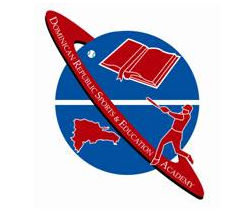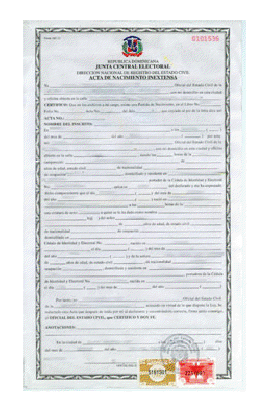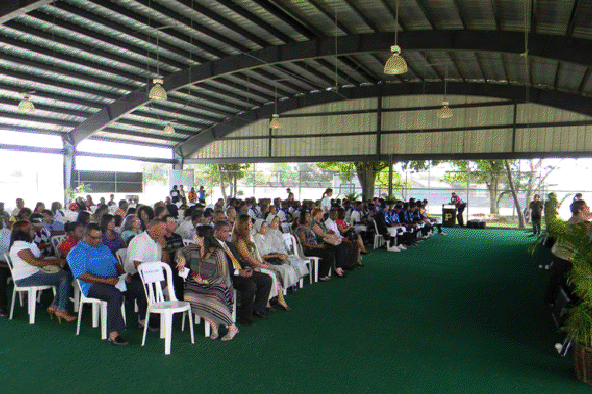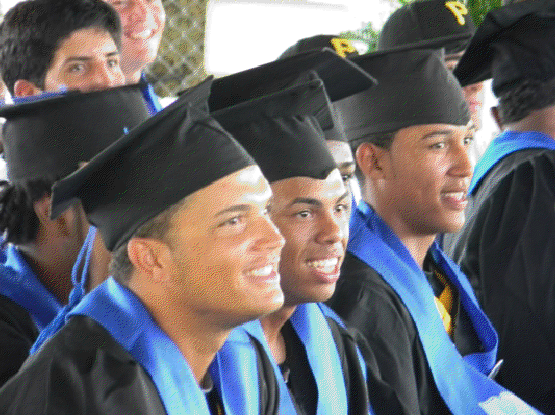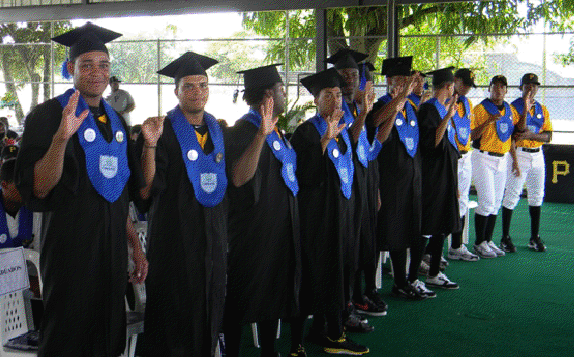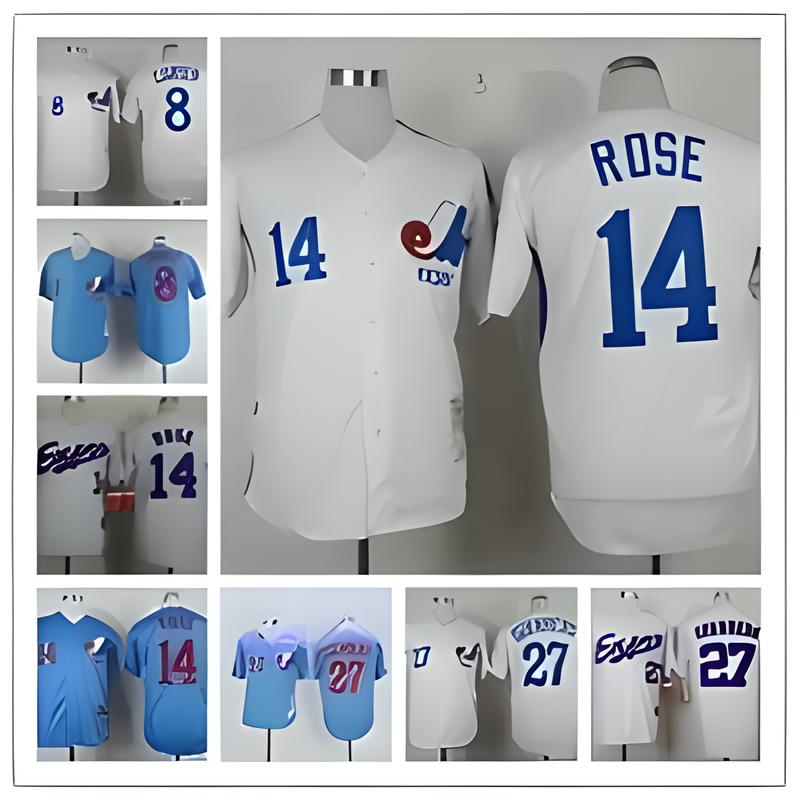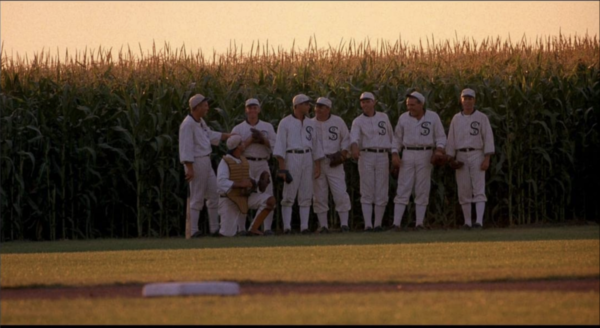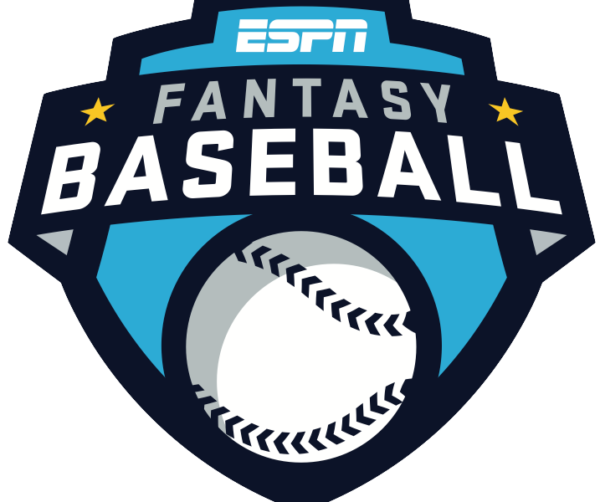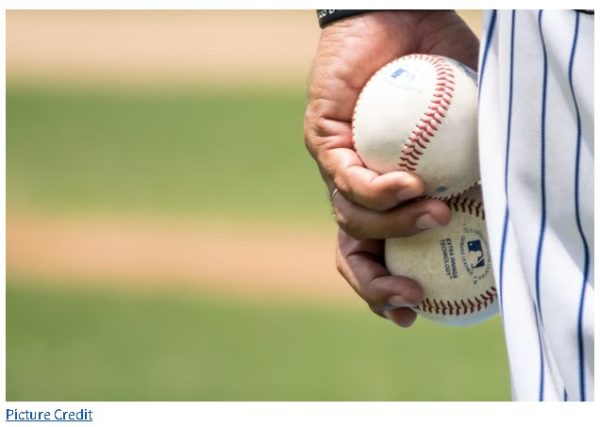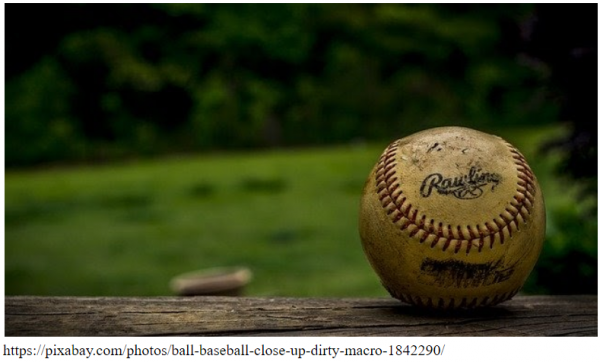What’s In A Name?
I used to chuckle when my mother would sometime look at me quizzically and ask, “When were you born?” My reply was generally, “You were there, weren’t you?”
But as I continue to ponder the ongoing dilemma that Major League Baseball faces in the Dominican Republic concerning age and identity fraud among young prospects, my mother’s occasional memory lapse has become increasingly understandable, particularly in a country where record keeping is often lax.
Major League Baseball recently revealed that of the 500 prospects a year it investigates; more than a third are rejected because of inconsistencies about who they are or when they were born. I am convinced more and more that a substantial amount of the identity questions are not because of deliberate attempts to mislead, but part of a cultural anomaly. But it is virtually impossible to separate the intentional from the unintentional, further exacerbating the dilemma. Baseball has taken to labeling such cases as “inconclusive,” but still locks questionable prospects out of the game.
In a recent case, Juan Carlos Paniagua, who had signed a $1.1 million contract with the New York Yankees, had his contract voided by MLB – and the right-handed pitcher with a 95 mph fastball was suspended for a year – after his identification paperwork was deemed faulty. This came after he was suspended for a year in 2010 for providing false identification to the Arizona Diamondbacks under the name of Juan Collado.
According to The Miami Herald, Paniagua’s problems began when his grandmother registered his birth, declaring herself as his mother. A new birth certificate was issued under his correct name, listing his real mother, but then baseball investigators said his school registry appeared altered and he was ruled ineligible, his coach Dario Moreno Martes said, explaining, “He has never had a different date of birth. If he is not Juan Carlos Paniagua, then tell me who he is?”
Who he is – and dozens of others like him – is an ongoing problem. “We try to be as comprehensive as possible,” Major League Baseball Senior Vice President Dan Mullin told the Herald. “We try to be as fair as possible and try to help the player prove he is who he says he is. But if you can’t prove who you are, you can’t get a visa to come to the United States.”
The proof is often a mystery that resists unraveling, whether there is deliberate intent or not to deceive. Very often in the Dominican Republic, births are not registered until years after, when memories have become sketchy with regards to exact dates, locations and circumstances. A relative could take a child to register the birth and not recall the exact date, or be provided incorrect information by the mother and father who may be juggling the birth dates of several children in their heads. But, it would be a stretch of the imagination to believe that someone would falsify the identification of a 6-year-old in anticipation that 10 or 11 years hence that lie would benefit them in getting their child signed to a professional baseball contract.
Also, people in the Dominican Republic traditionally carry the last name of both the mother and the father, but in general usage prefer one over the other. Over years, if one parent is absent, a name that appears on a birth certificate could be dropped from use, but become questionable when an identity search is made. With that parent unavailable for verification, the matter could end as inconclusive.
I have also seen identification further compromised by the spelling of a name. In the U.S., I would generally call someone “Jimmy,” but in the Dominican Republic, it might be written “Gemmy.” Or, in many cases, someone has been called a nickname – Chico – all their lives; in school records, hospital records – and that becomes who they are – not Joaquin. But over the years, people would write “Jimmy” to the point that it would become the accepted spelling – until the question of identity surfaces. And Chico turns out to really be Joaquin when baseball checks his identity. While there was no deliberate attempt to confuse anyone, red flags go up in a system where there are so many covert efforts to conceal identity.
And, further adding to the problem, according to one development academy owner who had three prospects’ contracts voided by identity questions, there is a cultural lack of understanding about the problem. “They figure if the birth date is close, or the name is close, what’s the big deal,” he said. “They know it is their son, so they don’t understand why it is a problem. We really have to get parents – and these kids – to understand that their identities have to be solid, have to be accurate, or we can’t get them signed.”
But there are certainly those who forge their identities to profit in a baseball world where 16-year-olds become instant millionaires while an 18-year-old with the same skills commands far less or could go unsigned. Since I have been in the Dominican Republic, I have gotten to know Edgar Ferreria, one such casualty of growing old. At 19, his value was dropping quickly until he was convinced to forge a new identity, that of a 17-year old, in part by paying off a local school to say he attended. With a new age and identity, he was offered a $75,000 contract with the Anaheim Angels.
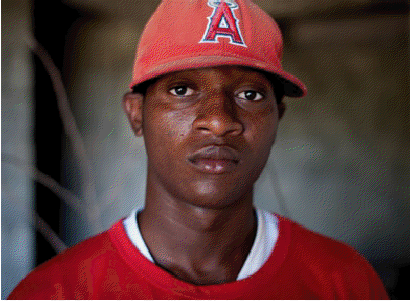
When the lie fell apart, Edgar’s contract was voided. At 23, he now works as a trainer at a development academy, his big league dreams shattered. “I am worthless — an old man who nobody wants to sign,” he says, his sad, empty eyes reflecting his pain.
Baseball has embraced numerous investigative techniques – including fingerprinting of prospects as first advocated in the INFORMER two years ago – and now uncovers more of the fraudulent cases. And, as the Dominican Republic adapts new measures to register births, the record keeping is becoming more accurate and less subject to tampering. But it will be years before those with the new accurate records reach 16 – the magic age when MLB teams can sign Dominican players. In the interim, baseball is saddled with the task of sorting out who is who, whether the prospect planned a deception or not.
The case of the Florida Marlins Leo Núñez – who is actually Juan Carlos Oviedo – is an example of just how pervasive identity fraud is. Nunez played under his assumed name – and an older age – for 10 years before coming clean, and I am told there are more than two dozen current major and minor league players in the same fix.
Recently, a television feature on Dominican baseball referred to me as a critic of Major League Baseball, an evaluation I have worked hard to avoid because it positions me as an adversary. I have never considered myself as an opponent of Major League Baseball, merely an advocate for education of the talent baseball mines in the Dominican Republic.
I avoid criticism in favor of observation and, based on those observations and my experience here, offer my opinions on problems in Dominican baseball that have become increasingly documented by others as well. These include the use of steroids among prospects, abuses at the hands of greedy flesh merchants, and most recently the errant age and identify fraud that undermines the integrity of the game.
The major problem leading to age and identification fraud has been and will continue to be the devaluation of Dominican players as they age. A 16-year-old with a 90 mph fastball is more valuable than a 19-year-old with the same skills, and with lax record keeping and a culture so rabid for baseball, the temptation to become someone younger, to fit the mold, is often irresistible.
I also try to offer viable solutions to the problems that plague Dominican baseball. I said it before and I will say it again that it seems to me that some of the age fraud could be avoided if these baseball Methuselahs could get a legitimate shot at the stardom all Dominican baseball players crave. Logic dictates that if a 19-year-old believes he still has a chance to reach his dream, he will be less likely to lie about his age. Sure, you would still be getting what many consider an aging diamond in the rough, but the upside is a more mature, more focused 19-year-old man as opposed to a 16-year-old boy.
I suggested more than a year ago that baseball teams in the Dominican Republic offer a combine similar to what the National Football League uses to evaluate talent prior to its annual draft, but only for those players 19 and over. Once, twice a year bring these so-called over-the-hill players to a location for workouts to assess their skills; make those workouts open to all teams who can then select promising players directly or via a special draft.
These players can easily be identified by the baseball’s expanded scouting bureau that now covers all of Latin America, and giving those 19 and over one last shot at a baseball career can only help eliminate their need to lie about who they are and when they were born.
Changing Of The Guard
Rafael Perez, the first head of operations at Major League Baseball’s office in the Dominican Republic, is returning to that post, the INFORMER has learned.
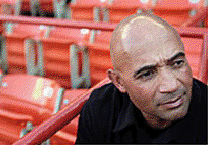
The return of Perez, who was Director of International Relations for the New York Mets, may signal a new, even tougher attitude towards reform in the Dominican Republic As a Dominican who came through the system, he has an intimate knowledge of its complexities. When he originally headed MLB’s office in the Dominican Republic, he fought to curb the influence of buscones, the flesh merchants who peddle prospects to MLB teams and often encouraging age and identity fraud and the use of steroids, problems that have plagued Dominican baseball.
After graduating from high school in the Dominican Republic, he went to Chipola Junior College in Marianna, FL, transferring in 1987 to the University of South Alabama where he finished his college baseball career while obtaining a degree in accounting. He then played for two seasons in the Pittsburgh Pirates organization.
After a stint with an international software company, Perez became a consultant with the Toronto Blue Jays, advising players on transitioning to playing baseball in the United States. In 2000, he took over Major League Baseball’s new office in the Dominican Republic. While there, he established standards for all MLB academies in the country. His oversight of Major League Baseball operations in the Dominican Republic ended when he left for the Mets in 2005, despite an offer to remain in Santo Domingo.
With the Mets, Perez was responsible for the team’s operations in the Dominican Republic and Venezuela, coordinating the Winter Leagues, and developing an international education program as well as special international projects.
While Perez is returning to old familiar places, the move can be viewed as a natural progression in the reform movement that started almost two years ago. Sandy Alderson, currently the Mets’ general manager, originally led the reform effort in the Dominican Republic; he was also responsible for establishing MLB’s office in Santo Domingo.
Alderson turned the reins over to Jorge Perez-Diaz, a lawyer from Puerto Rico who reportedly will continue as a legal consultant with Major League Baseball. Perez’ familiarity with Dominican baseball makes him a great fit a this juncture of the reform movement; I believe he also brings with him a healthy respect for the value of education, having received a college degree, as well as working with several international education organizations.
Education, in my mind, has to be a top priority of Major League Baseball if true reform in Dominican baseball is to be achieved.
Pomp And Circumstance
I recently had the honor and privilege of attending graduation ceremonies for a group of young Dominicans receiving their high school diplomas. What made the event unusual was that it was held at the Pittsburgh Pirates Dominican Republic baseball academy and the graduates are all Pirates’ prospects.
The Pirates are the only Major League Baseball team in the Dominican Republic that provides a mandatory education program for its prospects, and the ceremonies – the second since the program was instituted – reflect what can be accomplished if MLB teams make a commitment to education.
It was not the first time I visited the Pirates academy, a state-of-the-art complex that includes administrative offices, recreation facilities, a spacious kitchen, and a dormitory. The baseball facilities have a modern weight room, training room, locker room, film room, and more, and immaculately groomed fields. There are large classrooms that include computers and video setups. When the facility opened, the Pirates vowed to offer educational programs to all players and not only have they been promise keepers, they have set a standard all Major League Baseball teams need to emulate.
At the graduation, I met face-to-face for the first time with Trevor Gooby, senior director of Florida and Dominican Operations for the Pirates, who told me awhile back that the Pirates embrace a philosophy to develop the whole player. “This means physically, mentally, educationally and culturally,” he said.
He added, “I truly believe that it is our duty to develop the person. We can’t be blind to it………Realistically, many of our (prospects) will never make it to the majors. They will go back to their towns and villages. We want them to be productive members to their community and not a burden on the society. I truly believe that our educational program will assist them in their post-baseball lives.”
The program is not without a price tag – estimated to be around $75,000 a year – which may be why the Pirates are the only Major League Baseball team with such an education program, but Gooby says the Pirates believe the money is an investment in the future. The education program is conducted by CENAPEC, a nonprofit education company hired, in part, because the organization understands and incorporates Dominican education requirements into its curriculum.
The recent graduation ceremonies were held in a batting cage converted for the day into center stage. An array of fans circulate the air on a humid day as the graduates, and their fellow students, filed into the building in their baseball uniforms, accompanied to the strains of the Chariots of Fire theme song.
The graduates donned traditional cap and gown as beaming parents and friends gathered behind them to cheer their success – not on the baseball diamond – but in the classroom, a place many of them left years ago in pursuit of a dream.
The scene was inspiring as the graduates crossed the stage to receive their degrees, the sense of pride – of accomplishment – etched in their faces. They appeared to have a renewed swagger as they exited the stage, clutching their diplomas. One student, Yunior Antonio Valdez, choked back tears as he expressed his appreciation for the opportunity afforded him and the others, opportunity unavailable to the majority of Dominicans seeking the pot of gold at the end of the baseball rainbow.
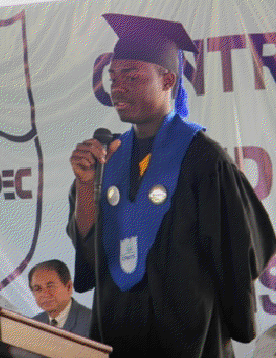
Life is a process of growth and learning, and education is a crucial component in that process.
The promise of education is to empower its recipients with knowledge, with confidence, to raise self expectations and expand the promise of a successful future.
That the Pittsburgh Pirates understand that gives me hope that other teams will follow their lead, and also gives me renewed confidence that the DRSEA mission is a sound one. I commented to Gooby that next year the team should invite baseball Commissioner Bud Selig to attend. I think he would be as inspired as I was.
 “Some men know the value of education by having it. I know its value by not having it.”
“Some men know the value of education by having it. I know its value by not having it.”
– Frederick Douglass, U.S. Ambassador to the Dominican Republic, 1890-91.

